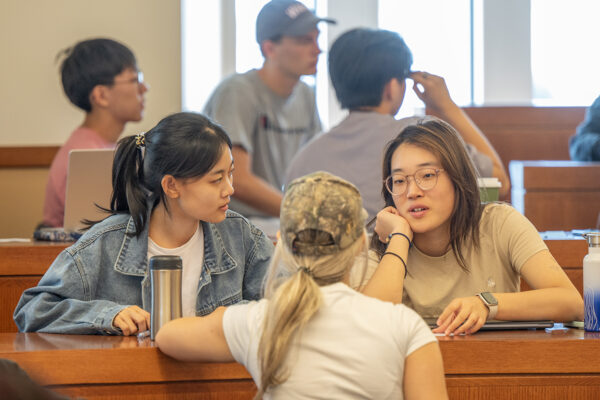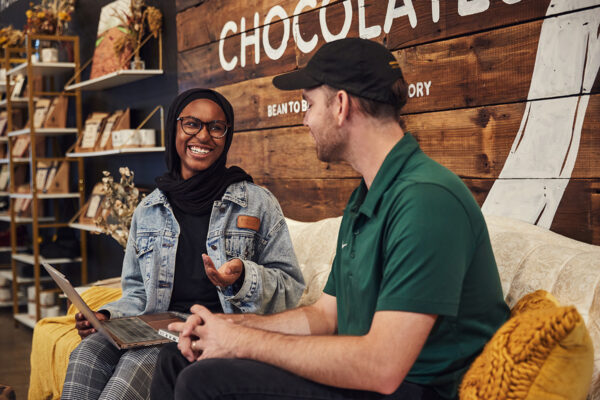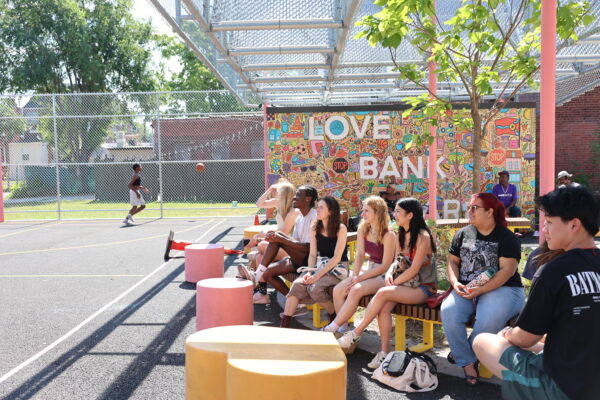The path to WashU is different for every first-generation student, said Anna Gonzalez, vice chancellor for student affairs. But they all share the same qualities — talent, grit and a commitment to give back.
“When I talk to our first-gen students, I often hear about that one person — a teacher, a mentor, a counselor — who helped them along the way,” Gonzalez said. “They know how important that person was in their lives, and they want to be that person for someone else.”
In recognition of the success of WashU’s first-gen students, those who are first in their families to attend college, WashU is participating in National First-Generation College Celebration Day from 10 a.m.-3 p.m. Friday, Nov. 8, on Mudd Field on the Danforth Campus. The party is open to the entire WashU community and will feature rock climbing, inflatables, yard games and carnival snacks. WashU Medicine will celebrate its first-generation students, faculty, staff and trainees from 4 to 6 p.m. in Cori Auditorium at the McDonnell Medical Sciences Building on the Medical Campus.
Gonzalez was a first-generation college student at Loyola Marymount University. She wasn’t ashamed of her status, but it wasn’t a point of pride either. Today’s students, however, know they make their institutions stronger, she said.
“As a student, I didn’t want to stand out; I didn’t want to be considered less than,” Gonzalez recalled. “Our students still feel some of those challenges. But what I see is a community of students who are proud of their history; who know what they are capable of because they’ve already achieved so much by just navigating the system.”
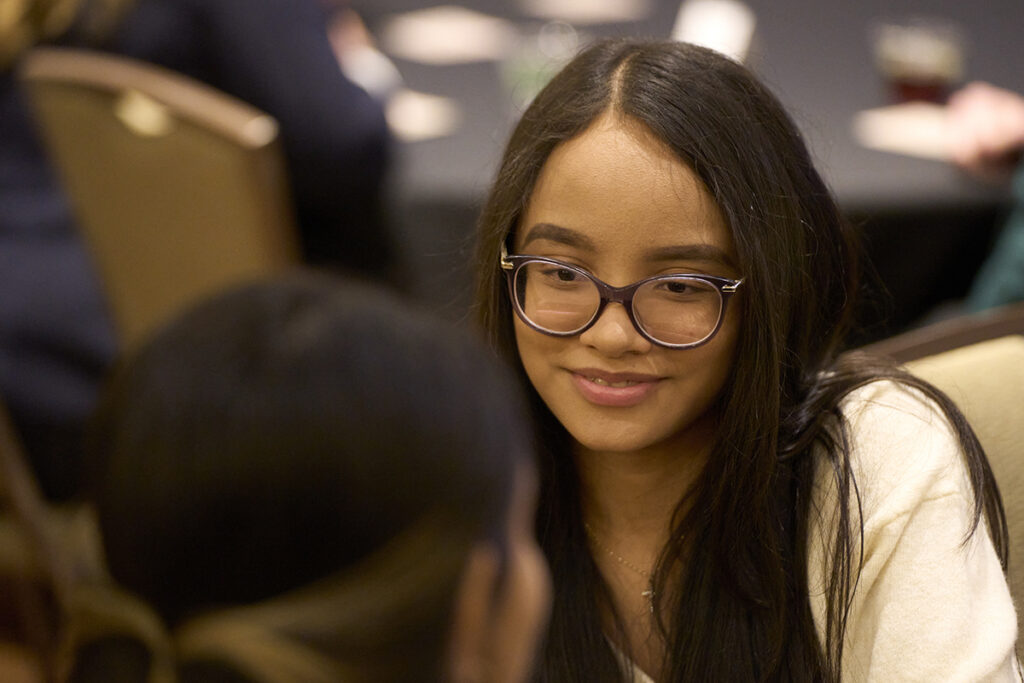
One of those students is Christi Changoor, a sophomore studying mechanical engineering at the McKelvey School of Engineering and a member of the Kessler Scholars Program, which provides financial and academic support to first-generation and limited-income students pursuing majors in science, technology, engineering and mathematics. Changoor applied to WashU sight unseen after her college counselor convinced her that WashU had the collaborative culture she was seeking.
“If I was going to go to school far away, I wanted to find another family,” said Changoor, of Houston. “That’s what I found here — a community that really has my back.”
Today, Changoor is a McKelvey Engineering tutor and a Kessler Scholars peer mentor. She meets one-on-one with her four mentees — “daughters,” as she calls them — every week.
“When I first got to WashU, I had really bad imposter syndrome,” Changoor said. “I would just sit in class feeling like I was the dumbest person in this room. So I know how they are feeling, especially when you’ve gotten As all of your life. I tell them, ‘Do you think you got in because some admissions officer was feeling nice that day? No — you were chosen to be here because you earned it. So give yourself a little bit of grace, have some fun and get the help you need.’”
In total, about 1,150 first-generation undergraduate students attend WashU, making up nearly 16% of the undergrad population. That’s more than three times the number of first-gen undergraduates admitted a decade ago. In that time, WashU has increased financial aid, expanded academic resources and introduced new initiatives such as the Taylor Stars program, which provides first-generation and limited-income students with academic and career mentorship along with workshops in financial literacy, life skills and professional development.
But the greatest resource for WashU first-gen students may be one another. The Taylor Family Center for Student Success, which administers the Taylor Stars, Kessler Scholars and Trio programs, employs roughly 60 peer mentors such as Changoor who help students navigate the college experience. A number of academic programs, like McKelvey Believes, also employ first-gen students to support their new peers. And a large percentage of residential advisors and WashU student associates also are first-gen.
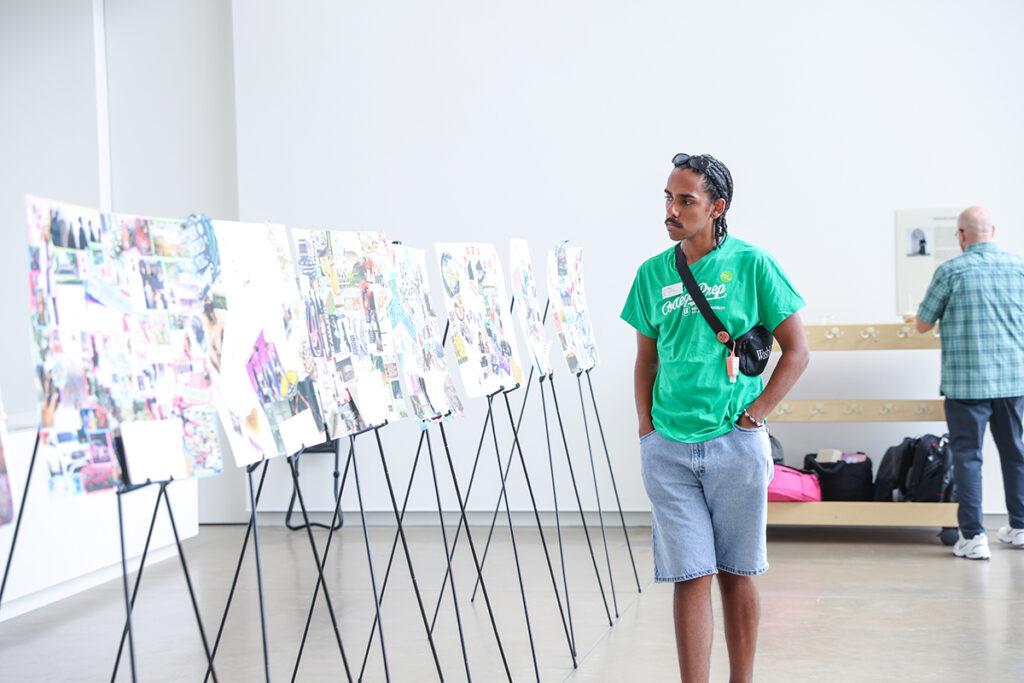
Other first-gen students are helping the next generation of such students. Undergraduate Admissions’ Bear Ambassadors provide tours and answer questions for prospective students, while its College Prep Program helps talented first-generation, limited-income high school students from the St. Louis region with test preparation, college coursework and enrichment activities.
Ethan Crandall, a first-generation sophomore from Knoxville, Tenn., served as a program assistant at the College Prep summer academy, where he helped scholars compose their college essays and prepare for standardized tests. More importantly, he provided straight answers to the questions he had asked just a few years ago.
“They wanted to know what it’s like to live in a dorm, about the college admissions process, how I picked WashU, how to balance your study life with your social life. Because I’m not that much older than they are, we could have these really good conversations,” said Crandall, who is majoring in global studies in Arts & Sciences. “The program also gives them an opportunity to think hard about what they want to do and why they want to do it, which is something that I really didn’t think about when I was in high school. In a lot of ways, I felt like I was learning alongside them.”
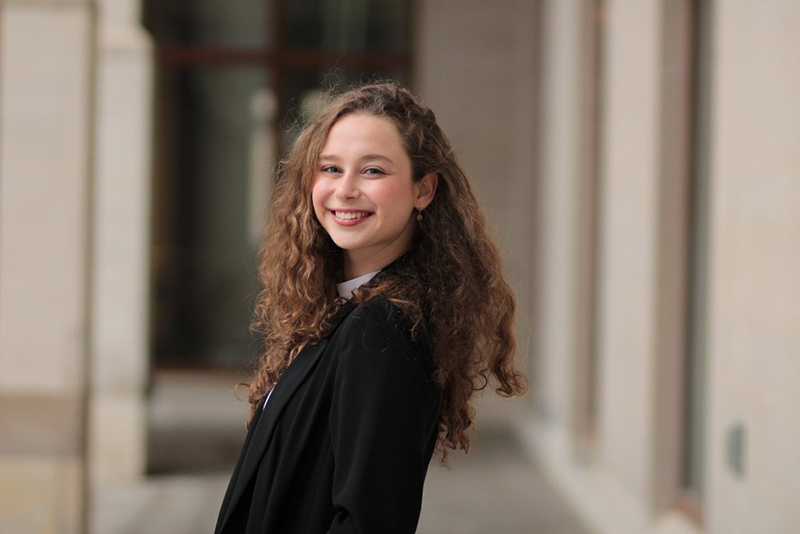
Other first-generation students lead clubs that provide after-school programming, health education and outdoor experiences to limited-income students in the St. Louis region. One of those organizations is City Dance, which offers dance classes at seven local elementary and middle schools. Liza Birov, a first-generation junior from Los Angeles, leads the weekly class at Combs Intermediate School in the Ferguson-Florissant School District. A nationally ranked rhythmic dancer in high school, Birov knew that she wanted to continue dancing in college.
“There are a lot of great clubs at WashU, but City Dance really stood out to me because I wanted to give back,” said Birov, who is a philosophy-neuroscience-psychology major in Arts & Sciences. “For me, dance is everything, and I want them to have the opportunity to feel the way that I feel.”
Her students are years away from applying to college, but Birov still hopes they see her as a role model.
“Growing up, I really leaned on my coach for the whole college process,” Birov said. “I know my students aren’t concerned about test prep and college essays just yet, but I really do hope they know they can lean on me, too.”
